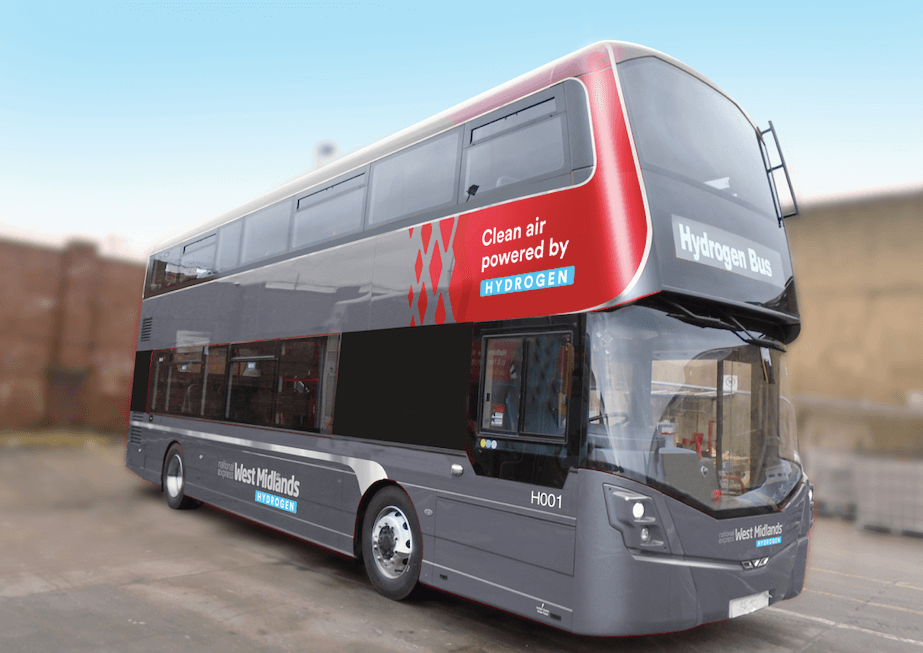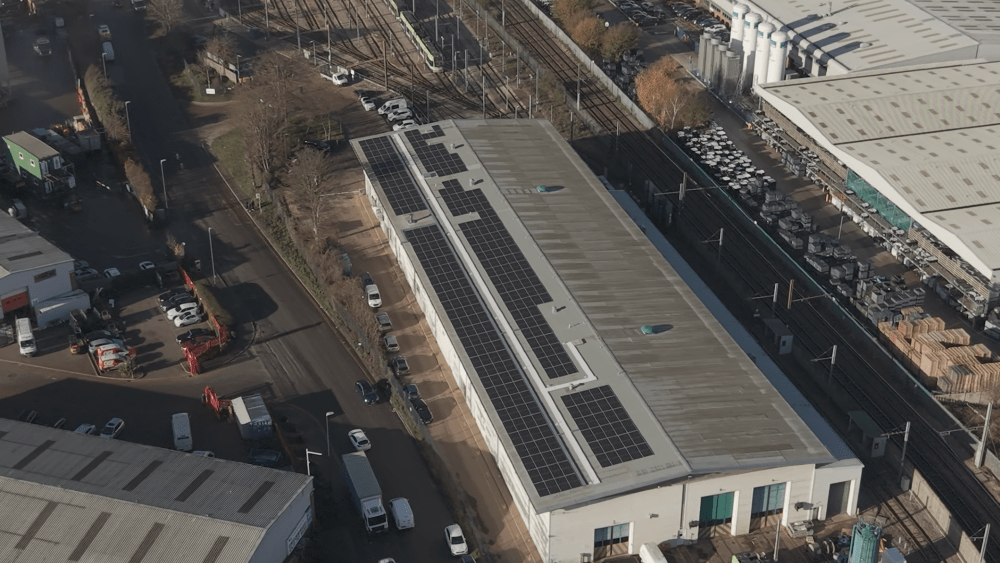Double decker hydrogen buses have been purchased by Birmingham City Council in a bid to kick-start the sector.
The 20 buses, which forms part of the local authority’s Clean Air Hydrogen Bus Pilot, aims to drive forward growth in hydrogen buses, production and the infrasturcture required to refuel such vehicles.
Manufactured by Wrightbus, the hydrogen buses will be introduced into the National Express West Midlands fleet in April 2021. Each bus is expected to save around 79.3 tonnes of carbon dioxide per year.
The council is also partnership with ITM Power, who will be producing and dispensing the hydrogen fuel from the new refuelling hub at Tyseley Energy Park.
Hydrogen buses use four times less fuel that standard diesel buses with a range of 300 miles on one tank and a refuel time of around 10 minutes. There is zero toxic emissions with the only emission being water vapour.
Speaking about the pilot, the council’s cabinet member for transport and the environment, Cllr Waseem Zaffar, said: “Fuel cell buses offer a practical solution for cities to decarbonise public transport and immediately improve air quality.
“It has taken us two years to get to a point where we can ensure commercial viability for this type of fuel cell technology and is great news for our city and the rest of the region.
“This pilot is a significant step towards our net zero carbon target and will provide Birmingham with a leading role in informing debate on supportive policies for zero emission public transport at a local and national level.”
Jo Bamford, Owner and Chairman of Wrightbus, said: “We’re incredibly proud that these buses hold the title of being the world’s first zero emission hydrogen fuel cell double deckers, and we’re delighted that Birmingham City Council has recognised the benefits that this technology can bring to the city.”
“We have an opportunity with hydrogen-powered transport to make a huge difference to air quality, but this fleet of buses represents much more than Birmingham striving to reach a clean air, zero-carbon future.”
“It represents the start of what could be a world-leading UK hydrogen economy which will bring with it multi-million-pound investments and tens of thousands of jobs.”












